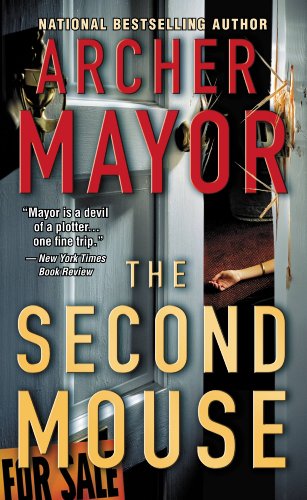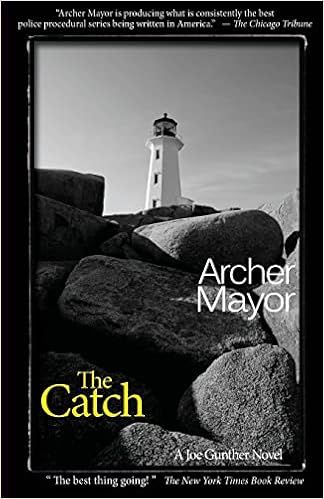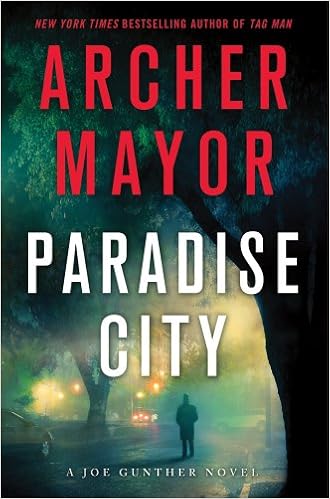
Description
From Publishers Weekly Starred Review. The death of Michelle Fisher strikes Joe Gunther as a little unusual in Mayor's superb 17th novel to feature the Vermont Bureau of Investigation detective (after 2005's St. Alban's Fire). When Joe calls for her autopsy results, he stumbles on a political snarl that threatens both his investigation and his relationship with chief medical examiner Beverly Hillstrom. Meanwhile, small-time criminal Mel Martin is intent on becoming a big-time criminal with the help of his wife, Nancy, and their friend Ellis Robbinson; for their part, Ellis and Nancy are increasingly disenchanted with Mel and enchanted by each other. Spinning out parallel story-lines and then weaving the strands together with deft precision, Mayor crafts not one but several mysteries and gives nothing away until the very last moment. While there's clearly a lot of history-most notably the recent end of Joe's 20-year romance with politician Gail Zigman, frequently mentioned despite its near-irrelevance to this particular plot-it's entirely accessible to new readers. Copyright © Reed Business Information, a division of Reed Elsevier Inc. All rights reserved. --This text refers to an alternate kindle_edition edition. From Booklist Has there been a crime? Joe Gunther, head of the Vermont Bureau of Investigation, doesn't know. Michelle Fisher is dead, but her body lies in peaceful repose in her converted nineteenth-century schoolhouse on the outskirts of Bennington. Nothing seems amiss, but Gunther's decades of experience and intuition nag at him. Natural causes? A suicide? Only medical examiner Beverly Hillstrom will be able to make the call, but Hillstrom is being harassed by her supervisor and can't do the requisite tests. At the same time, two of Bennington's smash-and-grab crooks are getting ready to hit the big time. Are they involved in Fisher's death? As a plot, it sounds thin, but in the hands of Mayor, it's a wonderful vehicle for a sweet, sad waltz of a crime novel. Mayor's elegiac tone and his insights into the human condition make The Second Mouse a fine addition to one of the most consistently satisfying mystery series going. Thomas Gaughan Copyright © American Library Association. All rights reserved --This text refers to an alternate kindle_edition edition. Excerpt. © Reprinted by permission. All rights reserved. “Watch out for the cat.” Joe Gunther froze by the door, his hand on the knob, as if expecting the creature to materialize from thin air. The young Vermont state trooper stationed on the porch looked apologetic. “I don’t know if we’re supposed to let it out.” Gunther pushed the door open a couple of inches, watching in vain for any movement by his feet. Encouraged, he crossed the threshold quickly and shut himself in, immediately encircled by the room’s strong odor of cat feces, wafting in the summer warmth. “I vote for letting it out,” he murmured softly. He was standing in one corner of a large, cavernous, multi-windowed room ― almost the entire ground floor of a converted nineteenth century schoolhouse, some five miles south of Wilmington. Contesting the smell, sunlight poured in through a bank of open windows, nurturing a solid ranking of potted and hanging plants. Old but well-loved furniture, none of it expensive and most of it bulky, did a convincing job of filling the expanse with a selection of oasis-like islands ― a grouping around the wood stove, another in a far corner flanked by floor-to-ceiling bookshelves, a third before a blank TV set. The most distant wall was dominated by an awkwardly linear kitchen ― an orderly parade of ice box, range, dishwasher, sink, and counter space. Gunther imagined any truly inspired cook here needing running shoes and patience, or a gift for organization. Giving the place a hint of old Africa ― or what he knew of it from the movies ― were several still ceiling fans with brass housings and long, dark wooden blades. The pine floor was covered with a hodge-podge of worn, non-descript rugs, which in turn bore several small gifts from the missing feline. That detail aside, the entire space looked homey, rambling, a little threadbare, and quietly welcoming. The house was also imbued with the silence that only death can visit upon a place ― a sense of suspended animation, striking and odd, as when a stadium full of people simultaneously holds its breath. This absence was why Joe was there. At the far end of the row of windows, a shadow appeared in a narrow doorway. “Joe?” Gunther nodded. “Hey, Doug. Good to see you.” Watching where he placed his feet, he approached his state police counterpart, Doug Matthews, the detective assigned to this region. Younger by several years, but a veteran like Joe, Matthews was experienced, low-key, and easygoing. Unlike many cops, he kept his opinions to himself, did the job, and maintained a low profile. To Joe, in a state with only a thousand full-time officers ― an oversized family compared with some places ― such self-effacement was to be valued. He stuck his hand out as he drew near. “How’ve you been?” “Pretty good,” Doug replied, accepting the handshake with a smile, his eyes remaining watchful. “Better than some. Come on in. I’ll introduce you.” They entered a much smaller room, tacked onto the building later in life, and on the cheap. It didn’t have the bearing of its mother ship ― the windows were cramped and few, the plywood floor covered with thin wall-to-wall carpeting. Low ceilinged and dim, it was paneled in fake oak, chipped and cracked. But the furniture, also battered and old, was the same ilk as its brethren, supplying a foundation of comforting familiarity. The dresser, the heavy desk, the solid four-poster bed were of dark hardwood, and the dents and scars appearing on them spoke not of neglect, but of simple domestic history, the passage of generations. This feeling of simmering life was echoed by the postcards and photographs adorning the walls and horizontal surfaces. Some inexpensively framed, others merely attached by tape or thumbtack, these pictures displayed vacation spots or loved ones, sun-drenched or laughing, and gave to the room, along with its furnishings, a warmth and intimacy it lacked utterly in its bare bones. Lying across the broad bed, as if she’d been sitting on its edge in a moment of contemplation before falling back in repose, was an attractive dead woman. Matthews kept to his word about the promised formalities. “Joe Gunther,” he said, “Michelle Fisher.” Joe nodded silently in her direction, and Matthews, knowing the older man’s habits, kept quiet, letting him get his bearings. Dead bodies don’t usually present themselves as they’re portrayed in the movies or on TV. In the older shows, they look like live actors with their eyes shut; in the modern, forensically-sensitive dramas, it’s just the reverse ― corpses are covered with enough wounds or artificial pallor to make Frankenstein swoon. The truth is more elusive. And more poignant. In his decades as a police officer, Joe had gazed upon hundreds of bodies ― the young, the old, the frail and the strong. What he’d discovered, blandly enough, was that the only common trait they shared was stillness. They displayed all the variety that they had in life, but in none of the same ways. In silent pantomime of their former selves, instead of quiet or talkative, gloomy or upbeat, they were now mottled or ghostly white, bloated or emaciated, transfixed into grimace or peaceful as if sleeping. Nevertheless, for those willing to watch and study, the dead, as if trying to slip free of their muted condition, still seemed capable of a kind of frozen, extraordinarily subtle form of sign language. That limited communication worked both ways. Everyone Joe knew, including himself, began their interviews with the deceased by simply staring at them searchingly, awaiting a signal. He asked himself sometimes how many of the dead might have struggled fruitlessly to be heard in life, only to be scrutinized too late by total strangers anxious to see or hear even the slightest twitch or murmur. So it was that Joe now watched Michelle Fisher, wondering who she’d been, and what she might be able to tell him. (Archer Mayor) --This text refers to an alternate kindle_edition edition. From AudioFile Joe Gunther, a Vermont Bureau of Investigation field force commander, is investigating the seemingly natural death of Michelle Fisher and the mysterious disappearance of a petty thief, as well as the activities of a fascist ex-biker terrorist and a plot to steal M-16 rifles from the National Armory. Christopher Graybill characterizes Gunther as an experienced investigator who knits together these divergent cases to methodically solve them. This police procedural is meticulously plotted, and the secondary characters are unforgettable. The villains are led by a bully portrayed by Graybill with such scorn and derision that his verbal jabs fall just short of actual punches. It's a treat to the ears when the bully meets his comeuppance. K.A.T. © AudioFile 2007, Portland, Maine-- Copyright © AudioFile, Portland, Maine --This text refers to an alternate kindle_edition edition. Mayor crafts not one but several mysteries...Entirely accessible to new readers. -- "Publishers Weekly (starred review)" Mayor's elegiac tone and his insights into the human condition make The Second Mouse a fine addition to one of the most consistently satisfying mystery series going. -- "Booklist" --This text refers to an out of print or unavailable edition of this title. “I once asked my wife who her favorite mystery author was and she said Archer Mayor… I’m not sure our marriage has recovered.” ―Craig Johnson, Author, Walt Longmire Mysteries, the basis for A&E’s hit drama “Longmire” --This text refers to an alternate kindle_edition edition. Archer Mayor lives in Newfane, Vermont. He writes full-time and volunteers as a firefighter/EMT. He is also a death investigator for the state's medical examiner and a part-time police officer for the Bellows Falls Police Department. Mayor has lived all over the U.S., Canada, and Europe, and has been variously employed as a scholarly editor, a researcher for TIME-LIFE Books, a political advance man, a theater photographer, a newspaper writer/editor, and a medical illustrator. In addition to his Joe Gunther series, he has written short stories, two books on American history, and many articles. You can learn more about Mayor at www.archermayor.com --This text refers to an out of print or unavailable edition of this title. Read more
Features & Highlights
- Thirty-one-year-old Victorian gentlewoman Amelia Peabody has not only inherited her father's fortune, but she is also blessed with his strong will as well. Now she's headed for Cairo, accompanied by a girl with a tarnished past, to indulge her passion for Egyptology. Little did she know that murder and a homicidal mummy lay in wait for her.




